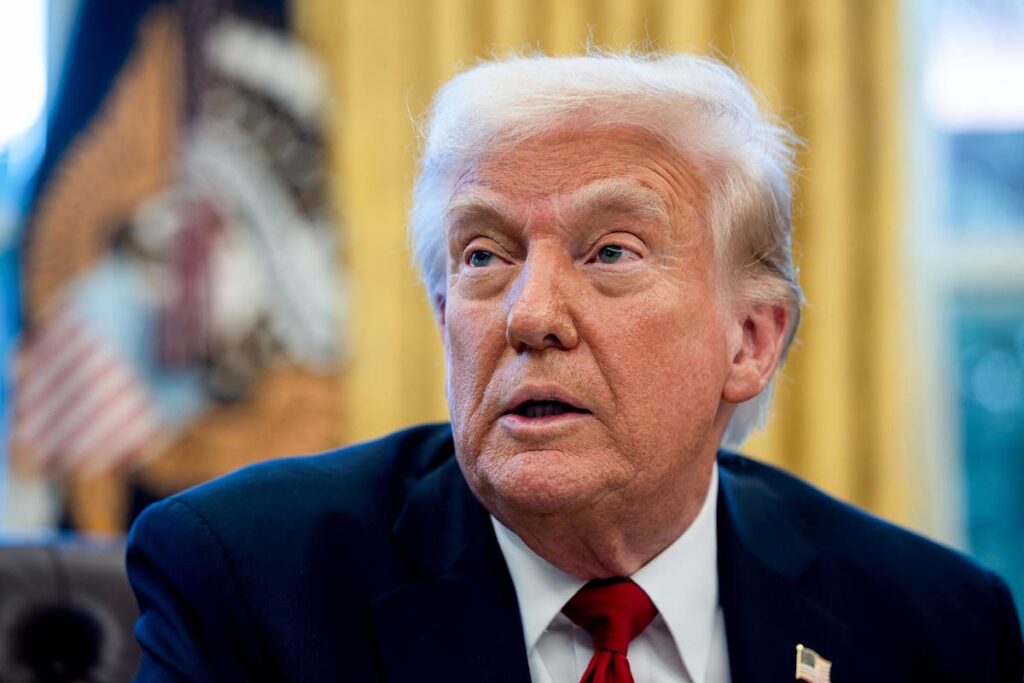Over the course of the last decade or so, Donald Trump has demonstrated an affinity for laying rhetorical groundwork for some of his most radical tactics. Ahead of the 2020 election, for example, the president prepared to reject a possible defeat, so he spent months telling the public that the electoral process was illegitimate. Ahead of his many criminal indictments, he similarly invested time and energy into delegitimizing the legal process.
This strategy came to mind anew upon hearing the Republican talk about possibly pursuing a third term in the White House. NBC News reported:
President Donald Trump did not rule out the possibility of seeking a third term in the White House, which is prohibited by the Constitution under the 22nd Amendment, saying in an exclusive interview with NBC News that there were methods for doing so and clarifying that he was “not joking.” … “A lot of people want me to do it,” Trump said in a Sunday-morning phone call with NBC News, referring to his allies.
To be sure, the president’s comments on the subject came with some caveats — or at least comments that seemed like caveats. Trump said, for example, that it’s “far too early” to make any decisions about his electoral future. He similarly added that it’s “very early” in his second term.
But those comments didn’t negate the apparent fact that the incumbent, who is prohibited under the U.S. Constitution from seeking a third term — the 22nd Amendment says, “No person shall be elected to the office of the President more than twice” — is open to the possibility of at least trying to pursue a third term.
In fact, in his interview with NBC News, Trump was hardly subtle. “I’m not joking,” he said, adding that there are “methods” in which he could pursue such a goal.
NBC News asked about a possible scenario in which Vice President JD Vance would run for office and then pass the role to Trump. Trump responded that “that’s one” method. “But there are others, too,” Trump added. Asked to share another method, Trump simply responded “no.”
Hours after the NBC News report reached the public, the president chatted with reporters aboard Air Force One and dodged a series of questions on the topic, though he claimed that “people” have asked him to run for a third term — which he said would be a fourth term “in a way” because his 2020 race was “totally rigged.” (It was not rigged; he lost fair and square, and he’s been lying uncontrollably about this for more than four years.)
If this broader rhetorical push sounds at all familiar, it’s not your imagination. Trump talked about pursuing a third term earlier this month. And last month. And the month before that. And the month before that. In fact, as regular readers might recall, Trump made a series of public comments about a third term during his first term.
What’s more, a variety of White House allies, most notably media personality Steve Bannon, appear to be quite enthusiastic about what they perceive as a possibility — which, again, is not a possibility.
I won’t pretend to know where this is headed or the degree to which the president is prepared to defy constitutional law. But Scott Cummings, a professor of legal ethics at the UCLA School of Law, made a comment on “The Rachel Maddow Show” on Friday that stood out for me.
Commenting on autocracies around the world that have consolidated power, Cummings noted that in none of these countries “do leaders do all the things that Trump is doing, take aim at all of these independent institutions, and then just walk away.” Rather, the professor added, authoritarians take these steps because they intend “to stay in power permanently.”
This article was originally published on MSNBC.com
Read the full article here


